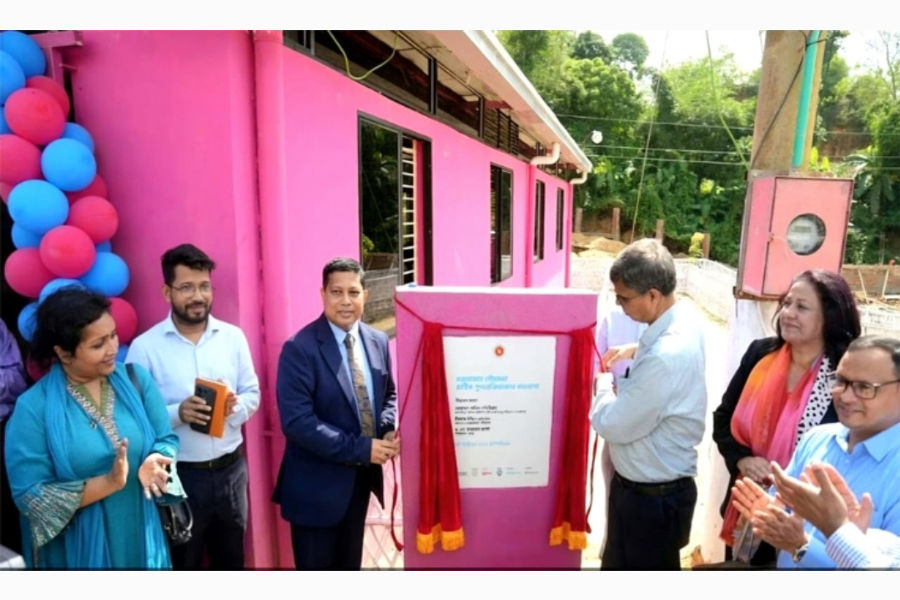Cox’s Bazar gets its first plastic recycling plant to reuse waste

Published :
Updated :

The first municipal plastic recycling plant in Cox’s Bazar was officially inaugurated recently, aiming to transform single-use plastic waste into valuable resources.
The initiative, established in Mithaichori of Ramu Upazila, was hailed by guests as a milestone for sustainable waste management in the district.
Mohammad Navid Shafiullah, Additional Secretary of the Ministry of Environment, Forest and Climate Change, inaugurated the plant, reports UNB.
Cox’s Bazar, a leading tourist destination that also supports a large displaced Rohingya population, faces mounting pressure from plastic waste every day.
Surveys have found that around 34 tonnes of plastic waste are discarded across the city daily.
A significant portion of this comprises single-use plastic or polythene, packaging materials, polypropylene, and thin polythene film — items that are particularly difficult to recycle and generally have no market value.
This recycling plant in Cox’s Bazar converts such waste into recycled plastic lumber, sheets, and pellets. These materials are then used to produce a variety of items, including eco-friendly, durable, and aesthetically designed sofas, benches, and sturdy pillars.
Additional Secretary Mohammad Navid Shafiullah said that the initiative represents a unique example of sustainable waste management.
He noted that, while it plays a significant role in environmental protection, it is also creating employment opportunities for women and local communities. He expressed optimism that similar initiatives would be adopted across the country in the near future.
Maysson Sallam, Technical Advisor - Medical Waste, UNOPS commented that it stands as a model for how public and private partnerships can turn environmental challenges into opportunities for innovation and impact. She added that UNOPS remains committed to advancing sustainable waste management solutions that support women and communities, build resilience and move Bangladesh closer to a plastic-pollution-free future.
Md Liakath Ali, Director of the Climate Change Programme, Urban Development Programme and Disaster Risk Management Programme at BRAC said that under the Plastic-Free Rivers and Seas for South Asia (PLEASE) project, BRAC has long been working towards making Cox’s Bazar free from plastic pollution.
Covering an area of 5,280 square feet, the facility is capable of processing up to 200 kilograms of plastic waste per hour. To ensure environmentally friendly, safe, and uninterrupted operations, it is equipped with an Effluent Treatment Plant (2,000 litres/day), a solar power generation system, a fire safety system, an electric substation, and 24-hour CCTV surveillance.
The plant is expected to create employment opportunities while supporting women waste recyclers. It will contribute to reducing plastic pollution in canals, wetlands, and coastal areas, helping to protect and restore environmental balance.
Among others, Bushra Nishat, Environmental Specialist, World Bank; United Nations Office for Project Services (UNOPS); Nizam Uddin Ahmed, Administrator, Cox’s Bazar Municipality; Ibne Mayaz Pramanik, Executive Engineer, Department of Public Health Engineering; Jamir Uddin, Director of the Department of Environment, were also present.


 For all latest news, follow The Financial Express Google News channel.
For all latest news, follow The Financial Express Google News channel.